President Xi Jinping’s recent State visit was heralded by David Cameron as the dawn of a ‘golden era’ in relations between Britain and China. Yet while trade deals worth billions were made, the Chinese President’s trip courted controversy not just over which trade deals were being signed, but over who Britain was doing business with. YouGov asked its panel of Opinion Formers - which draws leaders from the worlds of business, politics, the media, charities, public sector and academia among others – what they made of the pageantry.
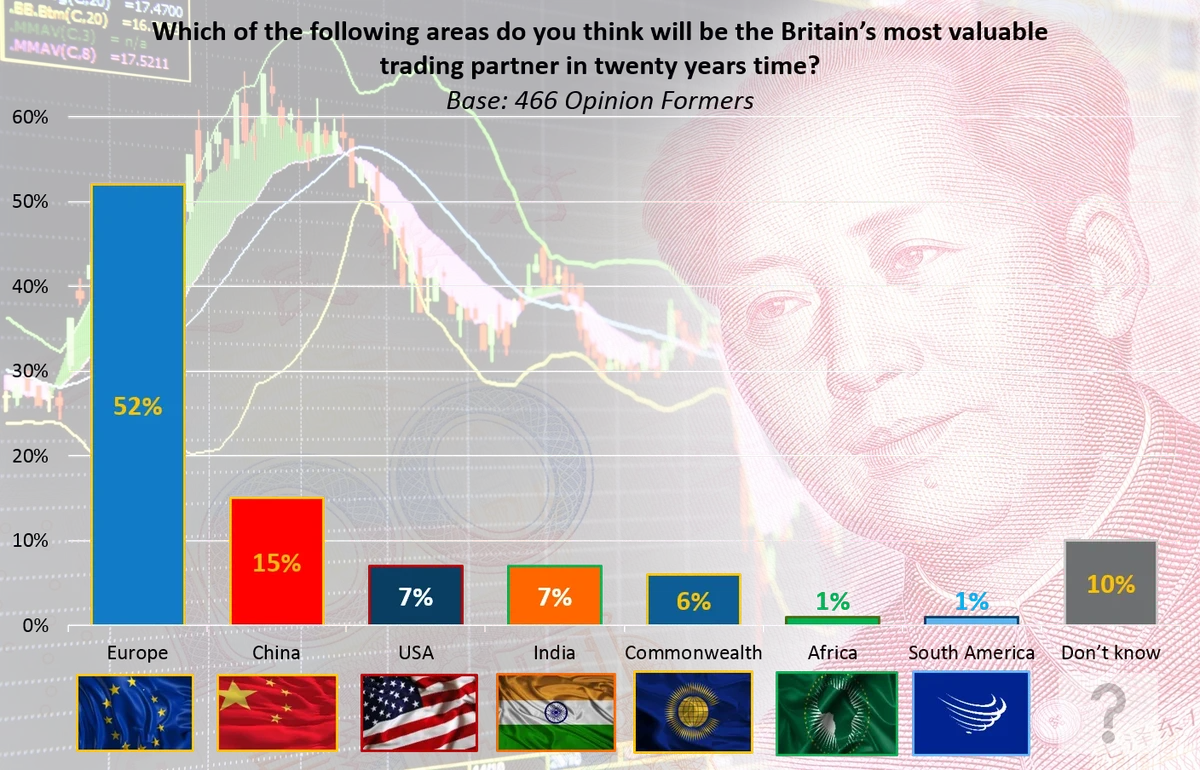
Despite the huge emphasis on forging stronger trading ties with China, Opinion Formers believe that the European Union will still be Britain’s largest trading partner in twenty years’ time (52%). Interestingly however, Opinion Formers see China as being second most valuable trading partner in twenty years, overtaking the United States which is currently second.
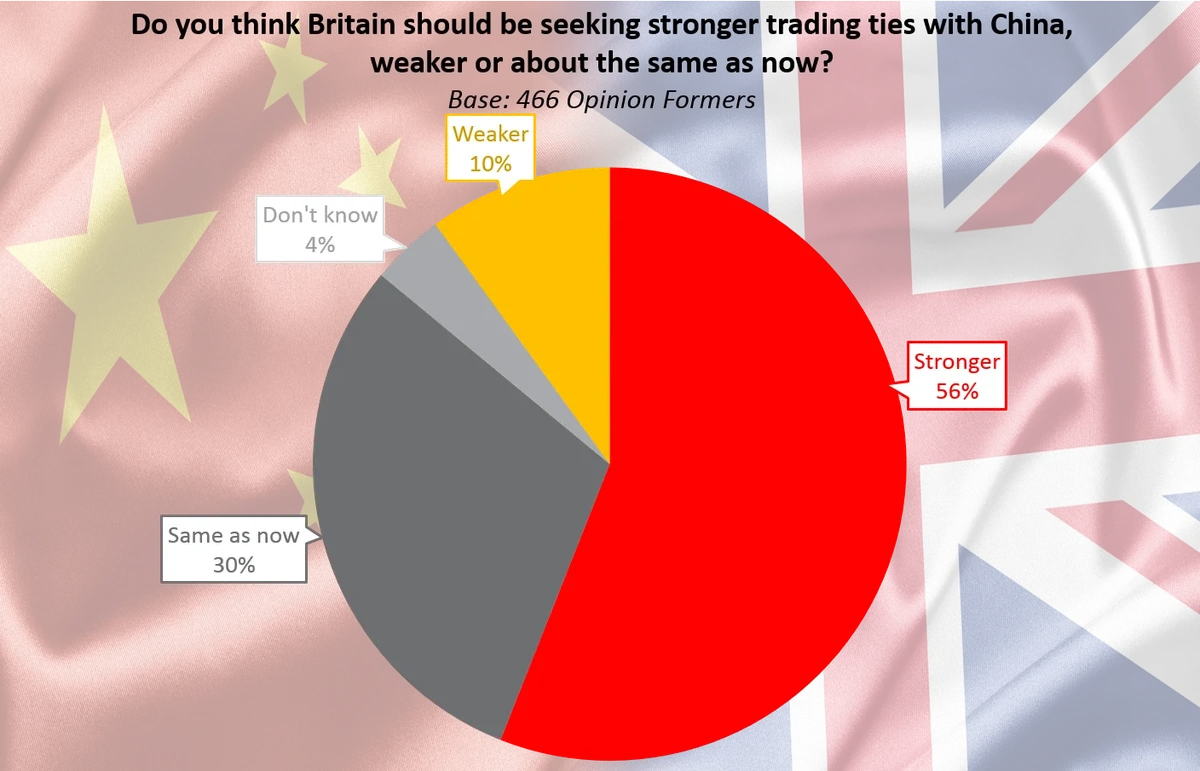
In recognition of China’s rise as a global player, the majority of Opinion Formers (56%) think that Britain should forge stronger trading ties with China, only 10% thinking we should weaken them. Almost a third (30%) however believe that Britain should keep the current balance.
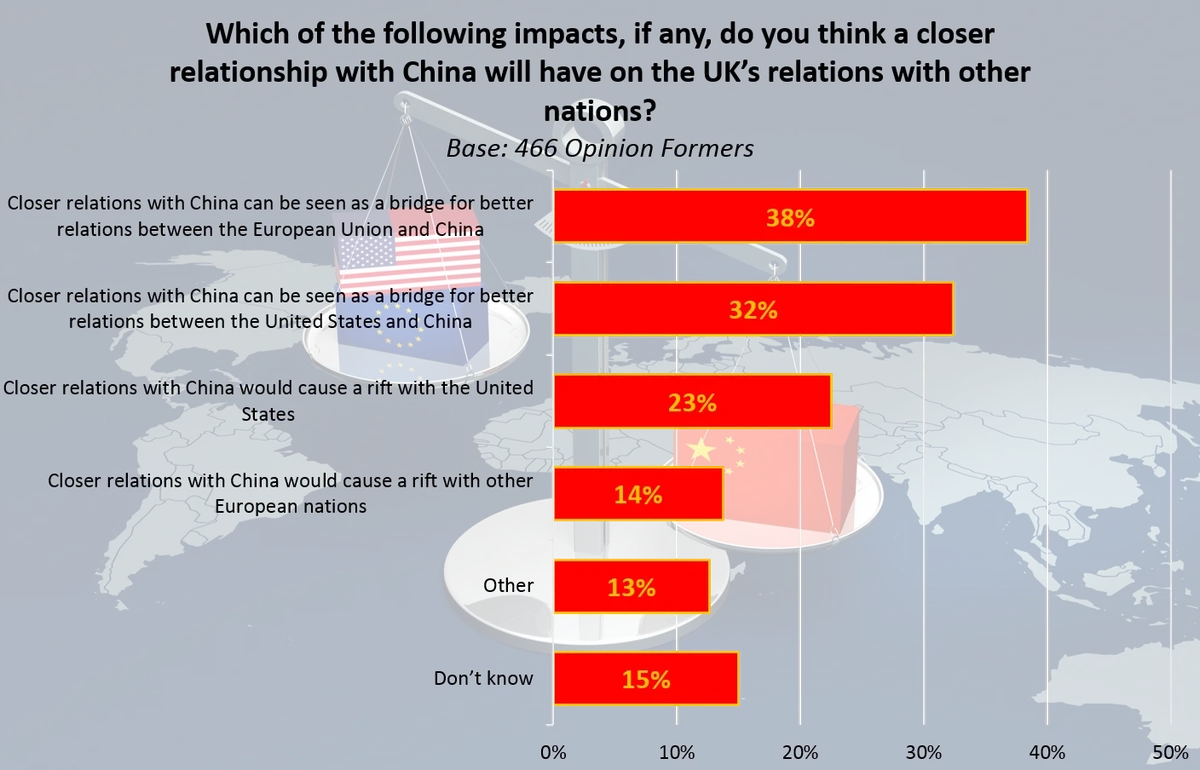
Securing a closer relationship between the UK and China could be a bridge for better relations between the European Union and China according to 38% of Opinion Formers. A third (32%) also feel that it could be a bridge for better relations between the United States and China - two nations which have traditionally been wary of one another’s intentions. However, almost a quarter (23%) believe that a UK pivot toward China could have an adverse impact on the relationship between the UK and the United States.
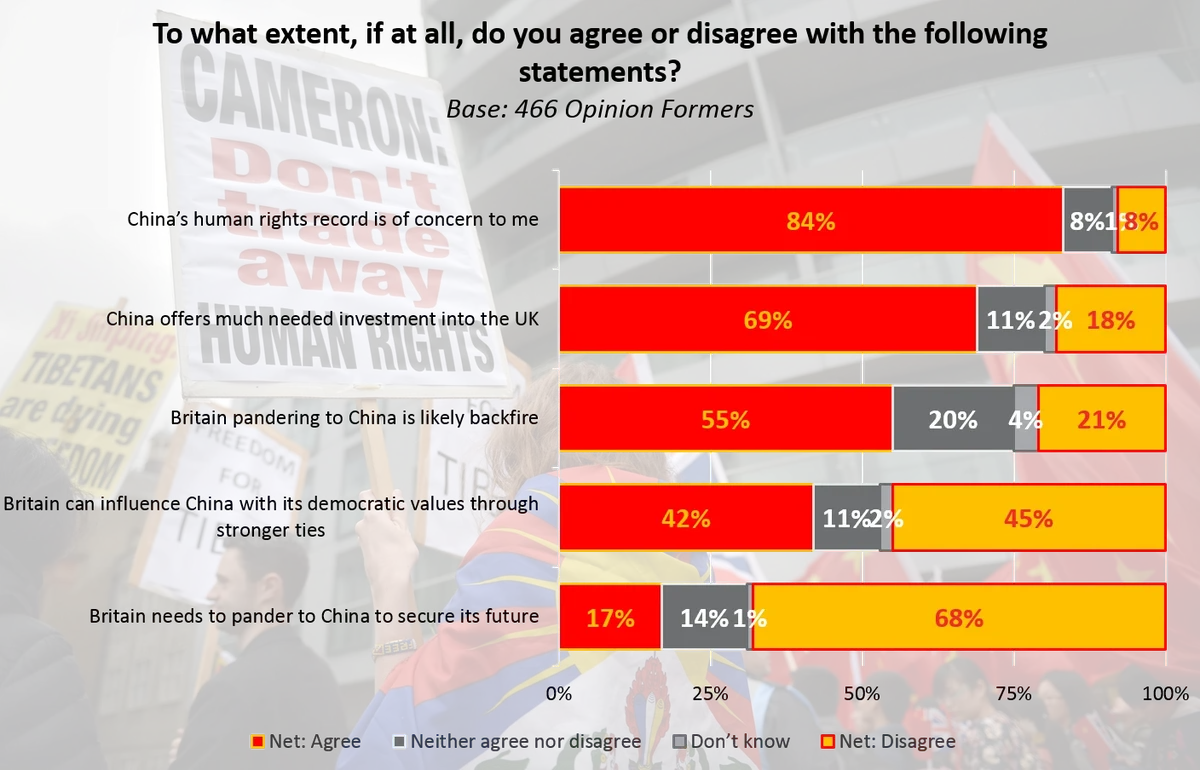
While 69% feel that China offers much needed investment into the UK, an overwhelming number of Opinion Formers remain concerned with their human right’s record (84%). Only 42% of Opinion Formers believe that closer ties will allow Britain to influence China with its democratic values, while 55% believe that Britain’s pandering toward China will backfire. Yet despite China’s ascendancy over the last thirty years, 68% do not believe that Britain needs to pander to a country many widely believe to be the next premier global power.
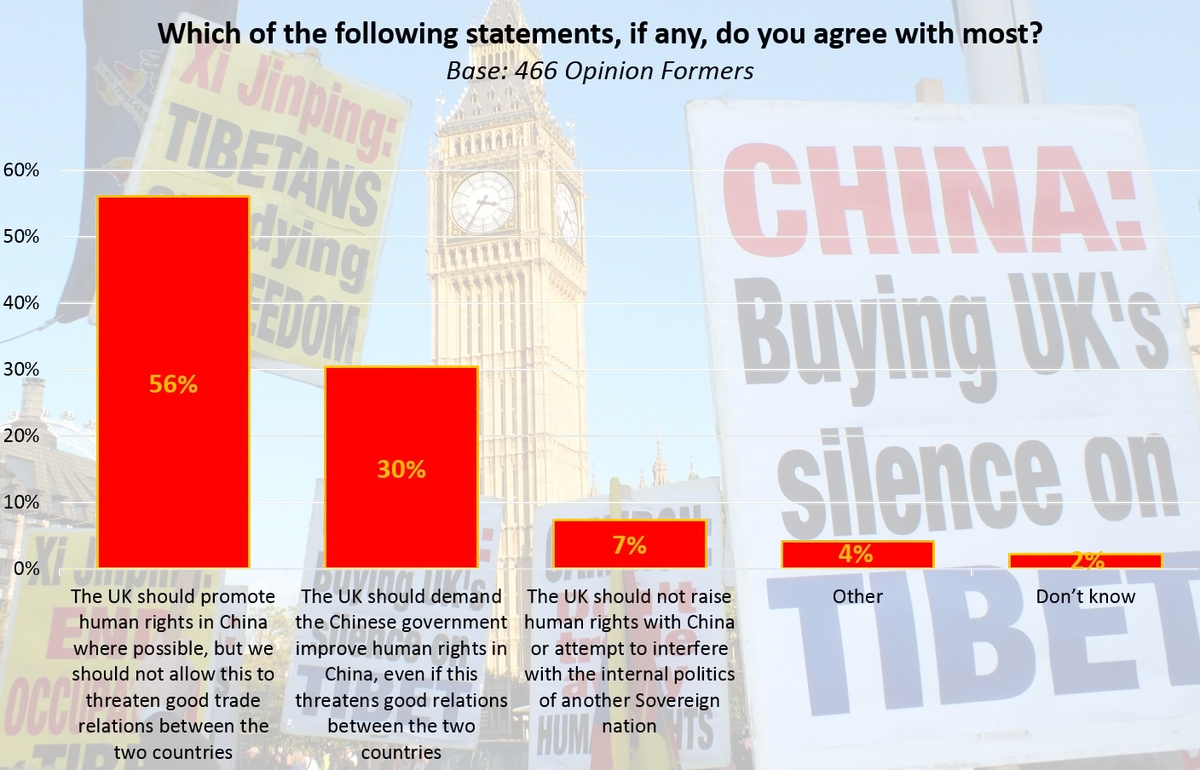
That is not to say however that Opinion Formers do not believe that the UK should refrain from pushing for the Chinese to improve on human rights. Over half (56%) believe that the UK should promote human rights in China where possible but only if it does not threaten good trade relations between the two countries. Conversely, almost a third (30%) think Britain should demand the Chinese government improve human rights, even if it comes at the expense of good relations between the two countries.
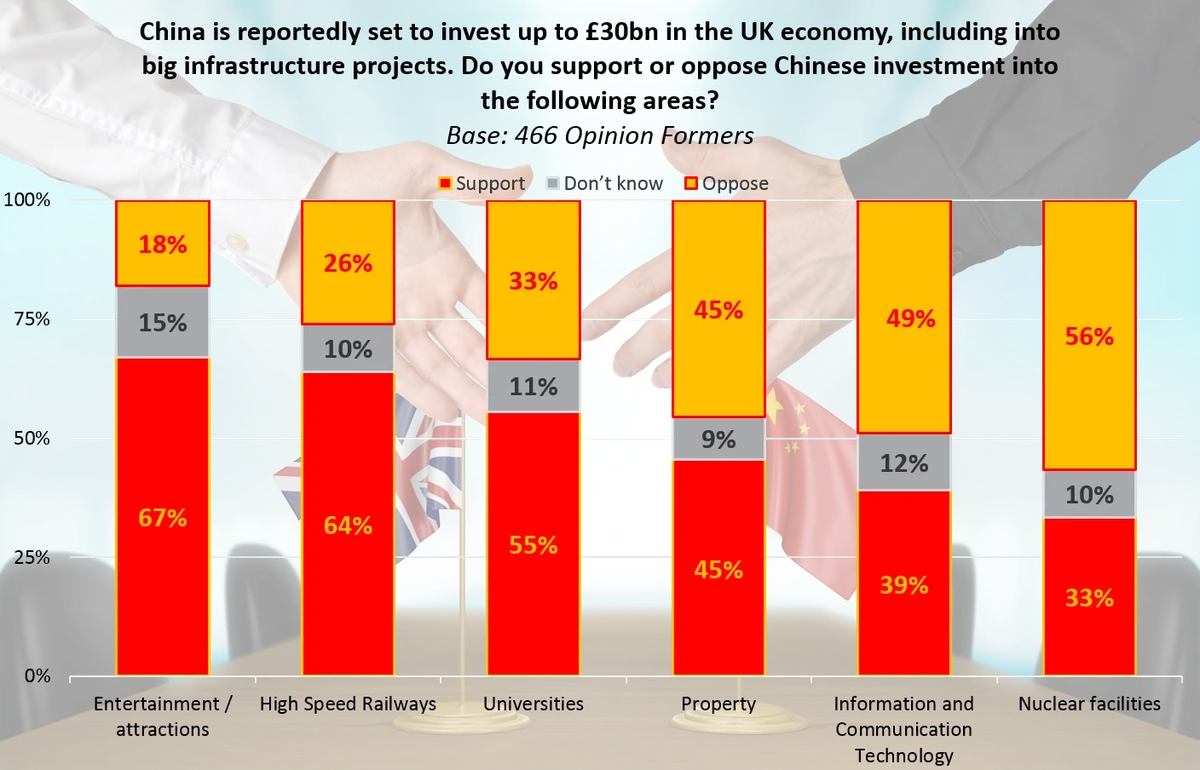
Reports surrounding President Xi Jinping’s visit estimated that the Chinese were set to invest up to £30bn in the UK economy, however concerns regarding which industries the Chinese would be investing in were raised. Proposed Chinese investment into nuclear facilities, such as the power plant at Hinkley, are opposed by 56% of Opinion Formers. Similarly, 49% oppose Chinese investment in Information and Communication Technology, suggesting that while Opinion Formers feel that trade with China is good, a distrust still exists over letting the Chinese invest in areas which could be seen as sensitive to national security.
Likewise, property, which now represents the largest sector of the UK economy which China is invested in, outweighing both energy and finance, is also seen as a dicey area for Chinese investment. With housing shortages and sky high property prices troubling many in the UK, there is an even split in support and opposition (45%) between Opinion Formers over investment into the sector.
However, Opinion Formers are most likely to support Chinese investment into industries which might be considered ‘softer’ or less critical to the nation. Seven in ten (69%) support Chinese investment in entertainment and attractions such as the planned London Paramount Entertainment Resort, while 64% support investment in high-speed railways and 55% support investment in Universities.
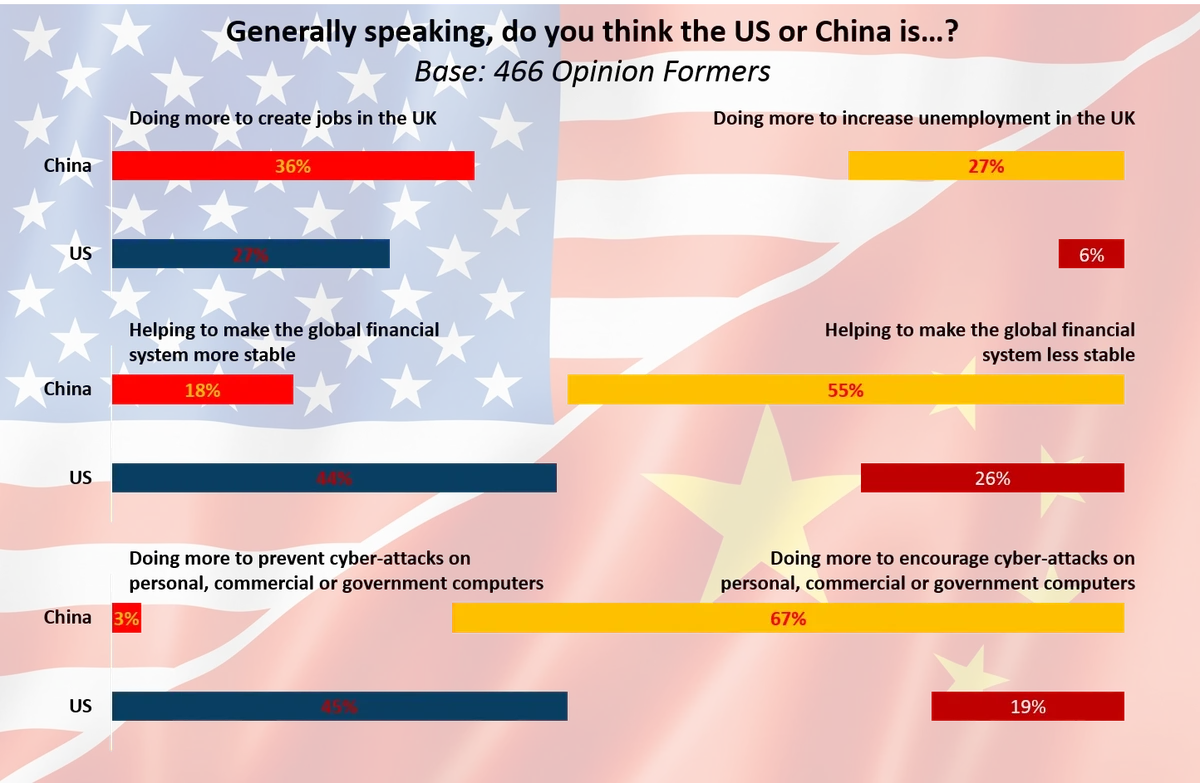
As the Chinese vie with the United States for pre-eminence, it can be expected that they will have an increasing influence on the world. Certainly, Opinion Formers feel that China is doing more to create jobs in the UK than the US (36% vs 27%), a traditional ally and second largest trading partner outside the EU. However, more trust is placed in the US to make the global financial system stable (44%), despite the financial crash originating there compared to over half (55%) who think that China is making it less stable, perhaps a reflection of the recent jitters in the Chinese stock market. In addition, 67% of Opinion Formers believe that China is actively encouraging cyber-attacks on personal, commercial and government computers, with the US seen more as the moral guardians of cyber security in attempting to prevent it (45%).
China is here to stay for the foreseeable future, and Opinion Formers recognise that Britain needs to adapt to a changing world by forging good relations with the next planetary superpower. However, there is also an undercurrent of disquietude, discernible with concerns over human rights and a reluctance to allow Chinese investment into sensitive areas of Britain’s economy. Yet building trust starts somewhere, and trade is invariably a good place to start. One Chinese proverb deftly explains, “All cats love fish, but fear to wet their paws".
YouGov completed online interviews with 466 opinion formers from its UK Opinion Formers Panel. Opinion Formers are leaders in their field from business, media, politics, NGOs, academia and beyond. Fieldwork was undertaken between 22nd October and 2nd November 2015. The figures have not been weighted.






